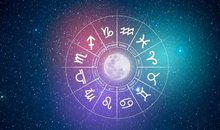
 Flash News
Flash News
The US is involved in the war, why did Trump take the risk of attacking Iran?
Bosnian tourist drowns in Durres
Massive accident on the Librazhd-Qukas axis, 3 injured, one in critical condition
An apartment in Yzberisht is engulfed in flames
Robbed a jeweler in Gjirokastra in 2021, 45-year-old extradited from Greece (NAME)
Why Turkey has become a paradise for mafia gangs, including from Albania
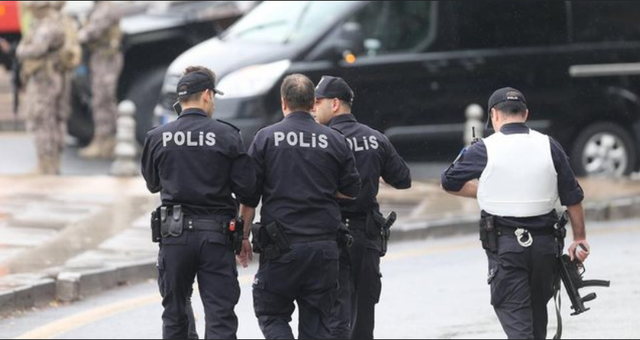
Liberal laws on money laundering, easy acquisition of citizenship, or insufficient investigations have turned Turkey into an attractive country for international criminality, among them criminal groups from Albania and the Balkans.
"My dear nation, we have arrested three wanted high-ranking gangsters in Alanya and Istanbul today," Turkish Interior Minister Ali Yerlikaya declared on social media this week. "No matter how powerful these gangs are, no matter what arrest warrants they ask for, we will take their souls," said the Turkish Interior Minister with a fighting spirit.
Since he took office in June, not a day goes by without the arrest of a dangerous criminal. Among those arrested are those who deal with the drug trade, who give money with huge interest, traffickers of human beings, fraudsters and thieves, but also important heads of international gangs that have taken root in Turkey in recent years.
That's what happened in the last few days. Interior Minister Yerlikaya wrote on X, ex-twitter, that they have arrested Thomas Josef K., the boss of a large Polish drug network, Daniel Alexander M., who is wanted in Germany after being linked to a several-ton load of cocaine captured and P. Jin-king, the head of a Chinese fraud ring. Only last week the minister announced the arrest of the heads of three Belgian-British, Vietnamese and Arab gangs.
A month ago, it was said that the Turkish police managed to arrest all the leaders of the "Comanchero" gang, a gang active all over the world. Among those arrested are several criminals from Australia and New Zealand, who are wanted by international arrest warrant from Interpol. Yerlikaya also posted videos shot during the arrests.
Why in Turkey?
Signals indicating that international gangs have established themselves in Turkey have been frequent for a long time. Assassinations and shootings have not been few, but there have also been many reports by investigative journalists. But before Yerlikaya took office, there were almost no serious investigations and arrest warrants issued against these groups. Because the previous Minister of the Interior, Süleyman Soylu, had ties to the mafia himself.
Në kohën kur ministër ka qenë Soylu, u liruan nga burgu rejtues mafiozë të botës turke të krimit. Kështu Turqia u kthye në vend të preferuar për kriminelët ndërkombëtarë, sidomos ata nga Serbia, Shqipëria, Azerbajxhani, Rusia dhe Mali i Zi. Ata kanë sjellë me vete edhe konfliktet e tyre, gjë që e tregon rasti i Jovan Vukotic-it, një bosi droge nga klani Skaljari i Ballkanit. Më 8 shtator 2022, Vukotic u vra në Stamboll. Siç kanë bërë të ditur hetimet, ai mendohet të jetë vrarë nga një grup mafioz vendas, për të marrë shpërblimin prej 1,5 milionë eurosh që ishte vënë për vrasjen e tij. Porosia për vrasje është dhënë nga klani rival, klani Kavac.
Kavac dhe Skaljari, dy klane droge nga qyteti port malazez i Kotorit, kanë rreth dhjetë vjet që bëjnë luftë të vërtetë nëpër Europë. Nga konflikti i përgjakshëm i tyre, janë vrarë 50 vetë në disa vende të ndryshme. Pyetur nga Deutsche Welle në vitin 2022, Zyra Federale gjermane e Kriminalistikës, BKA pati bërë të ditur se prej disa kohësh Turqia është kthyer në vend të preferuar edhe për grupimet kriminele nga Ballkani Perëndimor.
Kontrollet e autoriteteve turke kanë treguar se si këto grupe ushtrojnë aktivitetet e tyre nga Spanja në Turqi. Fotografitë dhe dokumentet e konfiskuara tregojnë për rrëmbime, tortura dhe vrasje.
Ligje liberale dhe pasaportat e arta
Për ekspertët ka arsye të mjaftueshme pse për shumë kriminelë Turqia është kthyer vitet e fundit në atdheun e dytë. Së pari, ligjet kundër pastrimit të parave janë liberale. Së dyti, qeveria jep çdo vit amnesti për kriminelët ekonomikë. Së treti, për shumë vende ekziston mundësia e udhëtimit pa vizë. Dhe së katërti, të pasurit mund të marrin pa humbur kohë nënshtetësinë turke.
Kush investon 500 mijë dollarë në Turqi, ose i bllokon këto para për tre vjet në një llogari bankare, ose kush blen pasuri të patundshme me vlerë prej 400 mijë dollarësh, mund të kërkojë nënshtetësinë turke. Sipas Kristin Surak-ut, nga London School of Economics and Political Science, që ka shkruar një libër të ri për të ashtuquajturat “Pasaporta të arta”, në gjithë botën marrin me anë të kësaj mënyre çdo vit nënshtetësinë e një vendi tjetër rreth 50 mijë vetë. Dhe gati gjysma e këtyre “pasaportave të arta” jepen nga Turqia.
Edhe drejtues bandash ndërkombëtare mund të marrin nënshtetësinë turke, nëse plotësojnë kushte e zakonshme dhe nëse kundër tyre nuk është lëshuar ndonjë urdhër-arrest nga Interpoli, deri në momentin e marrjes së nënshtetësisë.
Furkan Sezer, ish-shef i sektorit të kriminalitetit ekonomik në policinë e Stambollit, ka vite që e vëzhgon këtë skenë. Sipas tij, shumë kriminelë marrin një herë nënshtetësinë, vendosen në vend dhe më pas sjellin edhe pasurinë me vete. Falë amnestisë së përvitshme, kjo gjë është thjeshtuar shumë. Kjo gjë i krijon mundësinë njerëzve ose personave juridikë, që të deklarojnë tek autoritetet financiare, pasurinë e paregjistruar që sjellin nga jashtë ose brenda vendit, dhe ta bëjnë këtë pjesërisht edhe duke mos paguar taksa.
Turkey is a favorite place for international criminals, especially those from Serbia, Albania, Azerbaijan, Russia and Montenegro
In this way, a lot of money, the origin of which is unknown, is put into circulation in the legal financial network. Ozan Bingöl, tax expert, criticizes this practice. "Usually criminals pay 15 to 20 percent of the value to launder money," he says. And the Turkish government offers them tax-free legalization. This opens doors and windows for criminals, he thinks. Bingöl complains that the authorities do not have the power to fight money laundering. "If someone suddenly comes today with a million dollars, the authorities are not allowed to ask where this money comes from," he says. One of the first things the current AKP government did when it took power in 2002 was to implement this law, says Bingöl.
Even for investments in digital crypto-currencies there is a great lack of laws, which according to Bingöl entices international gangs to settle in Turkey. In his opinion, these investments should be adjusted as soon as possible.
Turkey part of the gray list
The International Institute for the Fight against Money Laundering and the Financing of Terrorism, FAFT (Financial Action Task Force), has concluded that Ankara should fight money laundering more severely. Two years ago, FAFT put Turkey on the so-called gray list. Since then, Turkey has been under careful observation. When the next inspection deadline comes, next June, Ankara hopes to get off the gray list because its economy is already so tired.
Through the unconventional policy of interest rates, Turkish President Recep Tayyip Erdogan has plunged the country into a deep crisis. The Turkish lira has been losing value for years and inflation is increasing daily. Recently, the inflation rate was 61 percent. Erdogan's mix with money politics and justice has also scared foreign investors.
But the country needs them. The new finance minister, Mehmet Simsek, who took over finance after the May elections, is trying to lure international donors to Turkey. He is often present on international platforms and tries to promote the introduction of fresh money to Turkey and the increase of confidence in Turkey. But to ensure this, they must do all their homework. Not only the Minister of Finance, but also the Minister of the Interior, fighting organized crime./DW
Latest news


Temperatura deri në 36 gradë, parashikimi i motit për sot
2025-06-23 07:40:11
Posta e mëngjesit/ Me 2 rreshta: Çfarë pati rëndësi dje në Shqipëri
2025-06-23 07:22:30
Krim brenda familjes në Greqi, 61-vjeçari vret prindërit e tij të moshuar
2025-06-22 21:57:48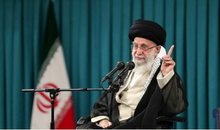
US airstrikes/ Iran warns: The game is not over!
2025-06-22 21:29:22
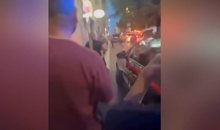
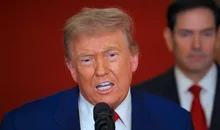
The US is involved in the war, why did Trump take the risk of attacking Iran?
2025-06-22 20:28:22
Israel-Iran conflict increases global tensions: Is the Albanian economy at risk?
2025-06-22 20:02:04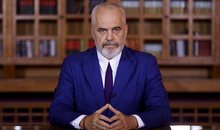
The US bombed Iran/ Rama: I support Trump's sincere efforts!
2025-06-22 19:40:21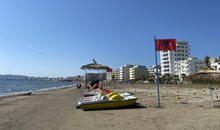
Bosnian tourist drowns in Durres
2025-06-22 19:05:48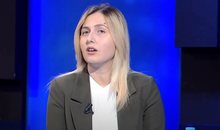
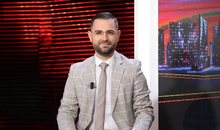
The 10 strongest criticisms of the PACE report on the May 11 elections!
2025-06-22 18:41:21
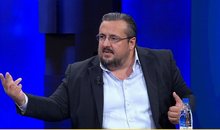
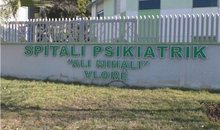
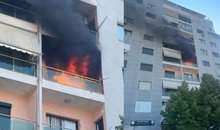
An apartment in Yzberisht is engulfed in flames
2025-06-22 17:32:13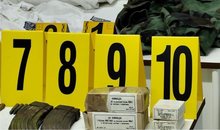
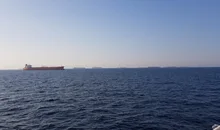
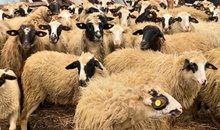
Rinderpest/ The number of outbreaks rises to 10, here are the affected districts
2025-06-22 16:25:12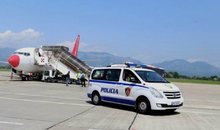
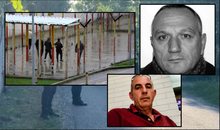
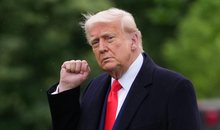
"Trump has opened Pandora's box"
2025-06-22 15:10:04
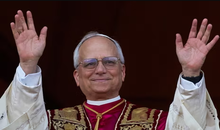
Pope Leo XIV: Stop the tragedy of war before it becomes an irreparable abyss
2025-06-22 14:24:22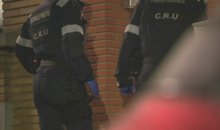
Criminal group busted in Belgium, 10 Albanians among those arrested
2025-06-22 14:00:58
Cities race for tourists, Tirana cheapest, but busiest
2025-06-22 13:35:53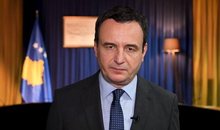
Kurti supports US strike: International security needs fewer nuclear weapons
2025-06-22 13:18:54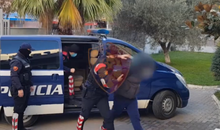
Selling drugs in the former Bllok, 23-year-old arrested
2025-06-22 12:57:58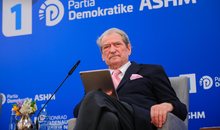
Berisha supports US strike on Iran: Strong call for overthrow of dictatorship
2025-06-22 12:39:35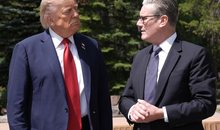
Starmer supports US attack on Iran, calls on Tehran to return to negotiations
2025-06-22 12:20:56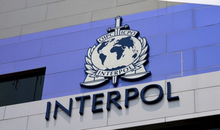
Sentenced to 8 years in prison in Italy, 33-year-old Albanian arrested
2025-06-22 11:54:45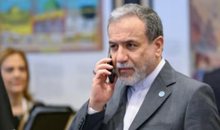
Iran condemns US attack on nuclear facilities, warns of consequences
2025-06-22 11:34:21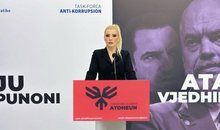
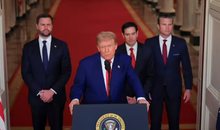
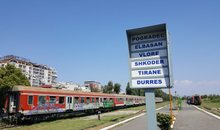
Albanian Railways is affected by collective staff cuts
2025-06-22 10:46:46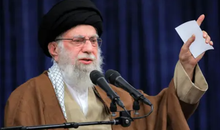
The US has changed the course of the conflict - how will Iran respond?
2025-06-22 10:24:26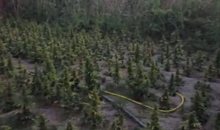
Cannabis in drainage canals, 48-year-old arrested in Fier
2025-06-22 10:06:41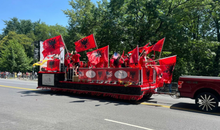
Albanians 'invade' New York, thousands march in the Red and Black parade
2025-06-22 09:44:26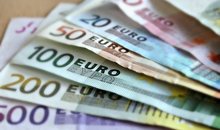
Foreign exchange, the rate at which foreign currencies are sold and bought
2025-06-22 09:27:27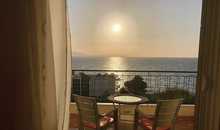
Is it worth buying an apartment to rent out?
2025-06-22 09:12:40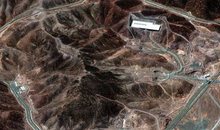
US bombs Iran, hits three Tehran nuclear sites
2025-06-22 08:53:08
Horoscope, what do the stars have in store for you today?
2025-06-22 08:35:50
Weather forecast/ How temperatures will change during the day
2025-06-22 08:20:43
Morning Post/ In 2 lines: What mattered yesterday in Albania
2025-06-22 08:00:29
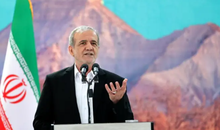
Iranian President: We will not stop nuclear program
2025-06-21 21:46:32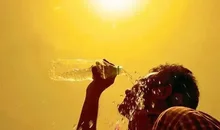
Europe hit by first heat wave: Up to 40°C expected this weekend
2025-06-21 21:19:19
Borussia Dortmund claim first win in Club World Cup
2025-06-21 20:56:04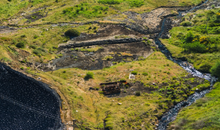

Accident on the Puka-Shkodra axis, two injured
2025-06-21 20:05:04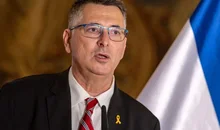
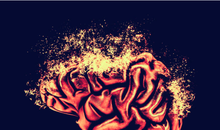
ChatGPT can damage your brain, here's what the study says
2025-06-21 19:20:25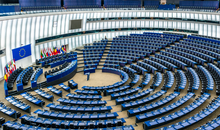
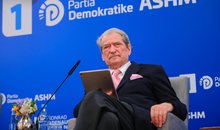
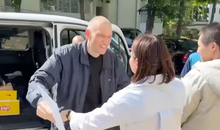
Belarus opposition leader released after five years in prison
2025-06-21 18:22:57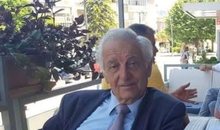
Renowned journalist and teacher in Korça, Vehbi Furxhi, passes away
2025-06-21 18:06:16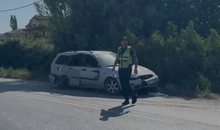
Accident in Fier-Levan, two injured
2025-06-21 17:43:25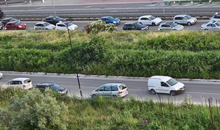
Tourism in traffic, when roads undo success
2025-06-21 17:25:31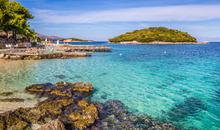

Broja on the verge of leaving Chelsea, 4 teams in talks for midfielder
2025-06-21 16:42:02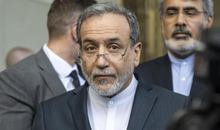
Iran confirms death of tenth nuclear scientist
2025-06-21 16:24:28
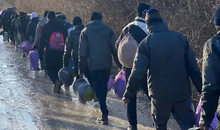
The Balkans as a warehouse for migrants?
2025-06-21 15:49:53
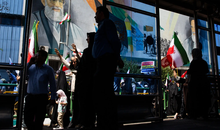
Khamenei names potential successors if he is killed
2025-06-21 15:10:58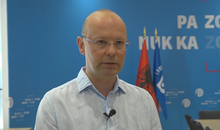
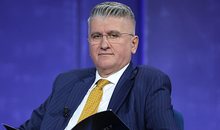

Memli Krasniqi re-elected as PDK chairman
2025-06-21 14:29:12

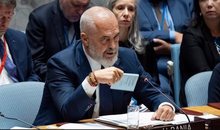

Israel says it has eliminated another top Iranian commander
2025-06-21 12:43:26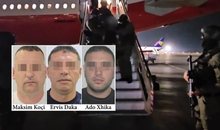

Iran and Israel exchange new attacks, Tehran rejects talks with the US
2025-06-21 12:00:20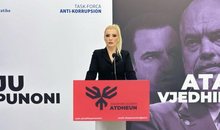
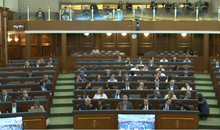
The impasse continues, the constitution of the Assembly fails for the 35th time
2025-06-21 11:14:23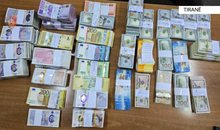
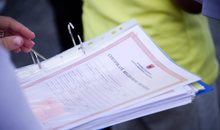
Report: Cadastre ignores Parliament and ALSAI recommendations
2025-06-21 10:35:59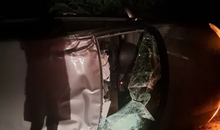
Car loses control on Tepelena-Kelcyrë road, driver injured
2025-06-21 10:14:47
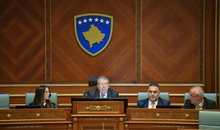
It failed 34 times, today a new attempt to constitute the Kosovo Assembly
2025-06-21 09:37:02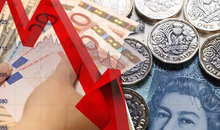
Foreign exchange, June 21, 2025
2025-06-21 09:17:10


With temperatures up to 35 degrees, check out today's weather forecast
2025-06-21 08:15:54
Morning Post/ In 2 lines: What mattered yesterday in Albania
2025-06-21 07:58:20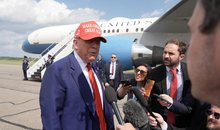
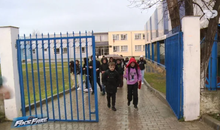
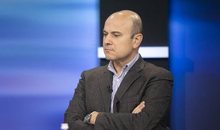
Dance with the mask of evil
2025-06-20 21:11:50
Matura 2025, Albanian Language and Literature exam grades published
2025-06-20 20:40:37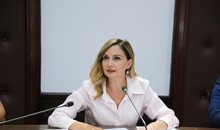
Tabaku: Albania has African wages and European prices
2025-06-20 20:33:02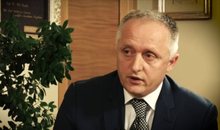
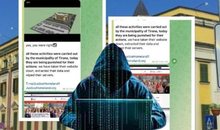
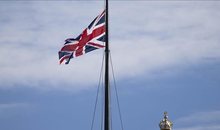
UK temporarily withdraws embassy staff from Iran
2025-06-20 19:16:02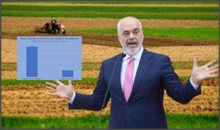
How Albania became the country with the highest cost of living
2025-06-20 18:49:11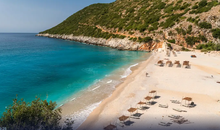
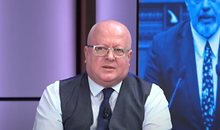

Hail and strong storm "grab" Belshi
2025-06-20 17:35:56
